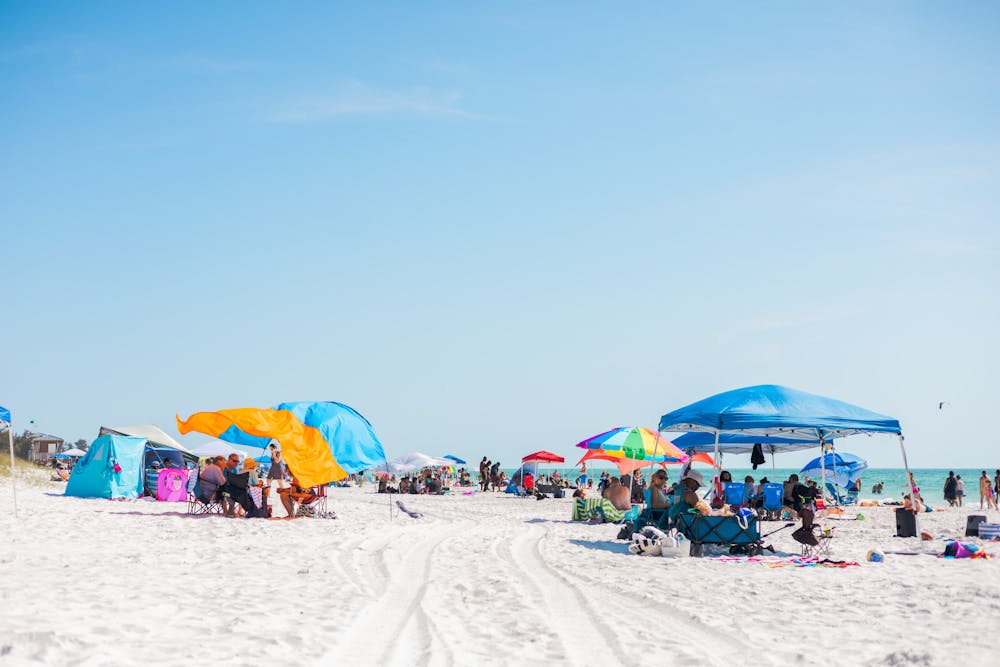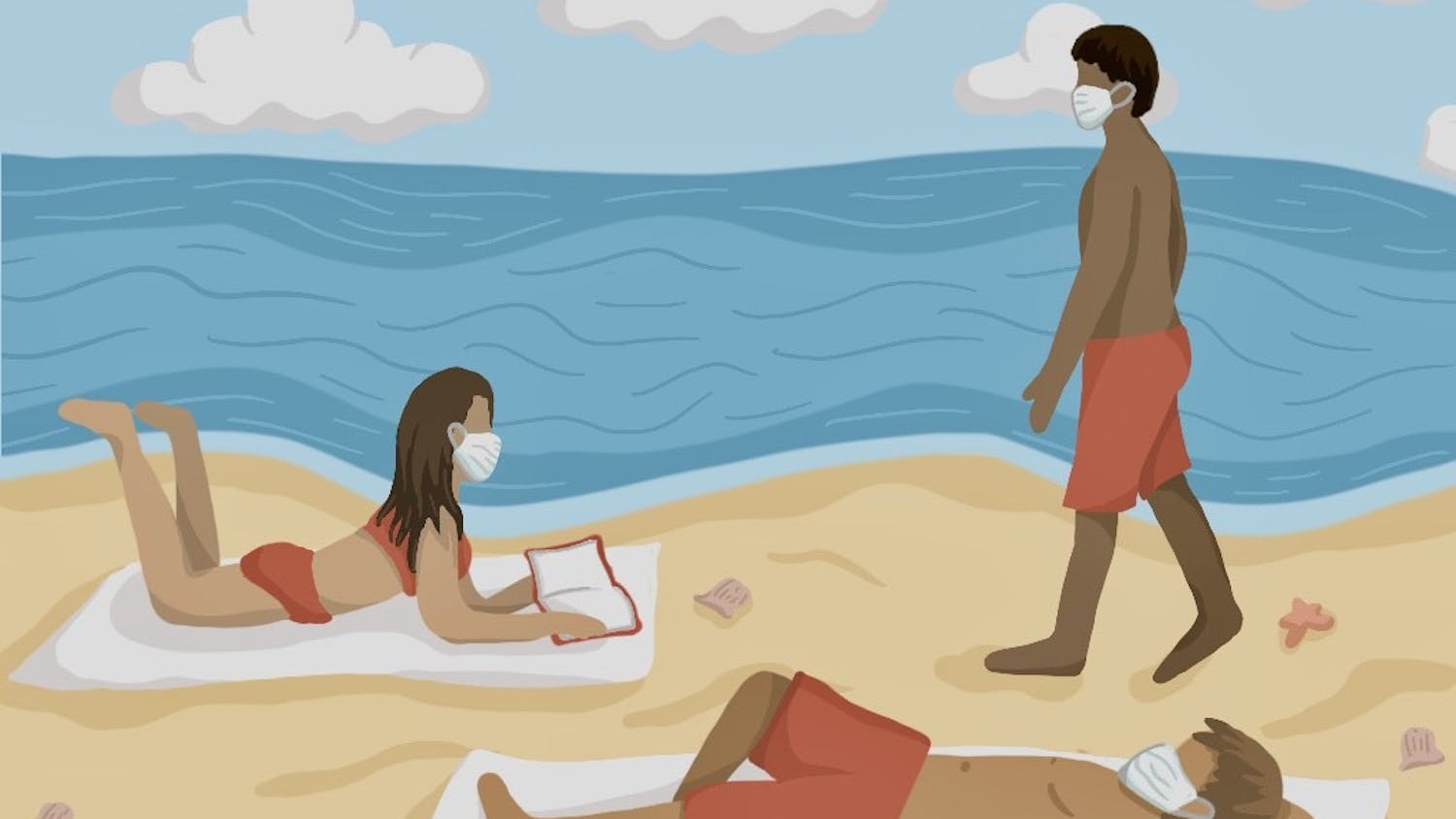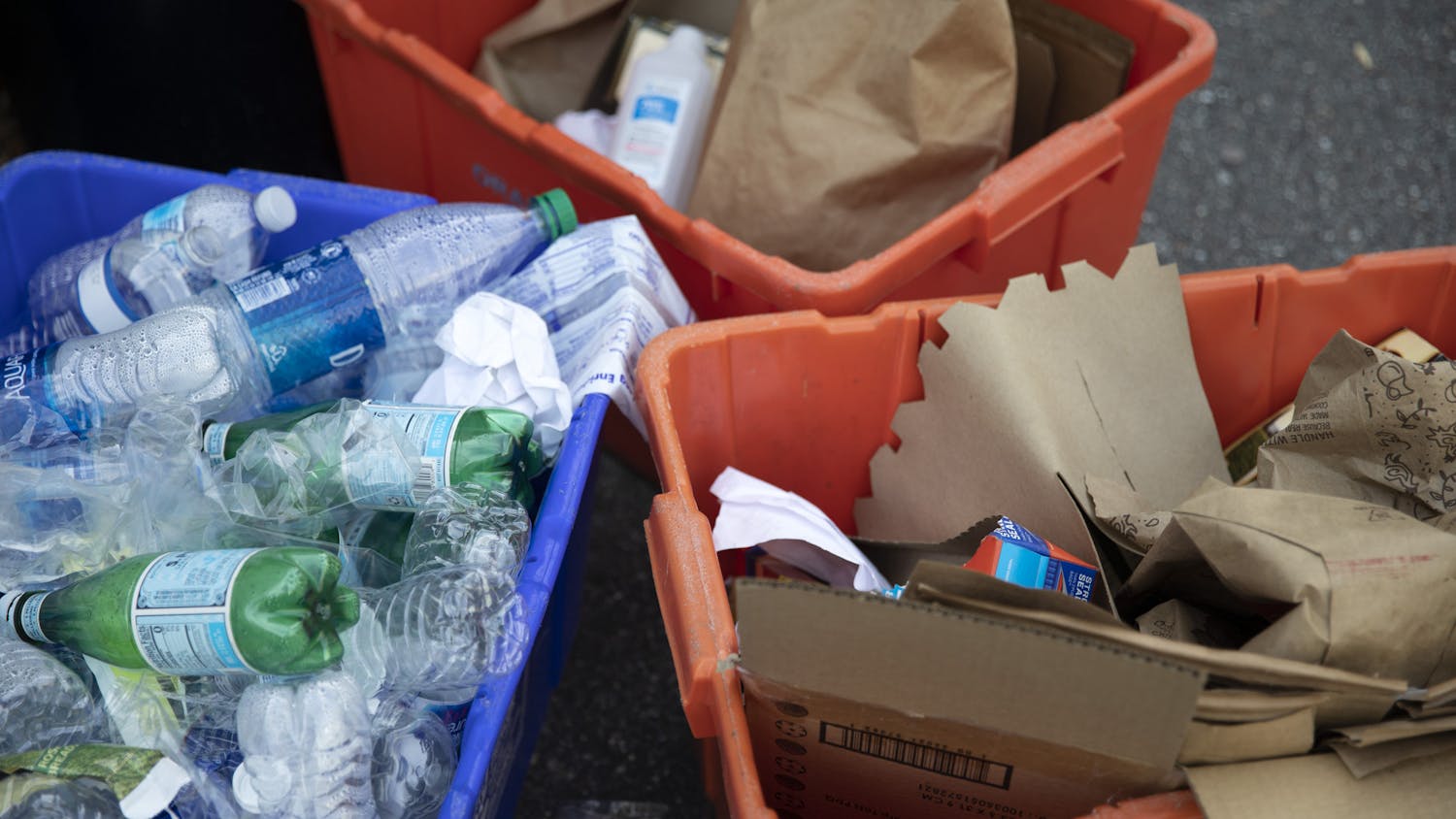School flags dot the sandy shores and trash is littered everywhere as students let loose, free from the burdens of assignments, labs and exams.
As spring break kicked off, college students rushed to Florida beaches for a week of partying and relaxation.
The idyllic image of spring break fails to resonate with everyone. Beaches are left littered, crime spikes and excessive partying disrupts some students who are looking for a laid back beach day at home.
In 2023, Florida saw a record 37.9 million visitors between January and March, which marked the greatest influx of visitors recorded in a single quarter.
Lauren Dela Rea, a 20-year-old UF microbiology sophomore, went to her hometown beach in Jacksonville during spring break. While it feels good to return to the beach she fell in love with, she said she doesn’t like how crowded it becomes during holidays.
“Me and a lot of other people who are from Jax try our best to either go more down where there's more hidden parking lots, or even other beaches that are a lot more kept away than Jacksonville Beach,” Dela Rea said.
While some locals still enjoy going to the beach on spring break, others prefer to stay indoors and out of the chaos. Marissa Schneider, a 20-year-old UF microbiology sophomore from Santa Rosa Beach, said many locals in her area are heading down to a bar and grill to spend time away from the spring breakers.
“I know it's good for [the] economy because we do rely on tourism so much, but it kind of sucks because there’s always something going down,” she said.
Highway 98, which many visitors drive through, has been in renovation for four or five years now, and accidents occur every year because of spring break, Schneider added.
In Miami, the spring breakers issue is only exacerbated, as last March, law enforcement made 488 arrests, which included two homicides and the seizure of 105 firearms.
Elena Abraham, a 19-year-old UF finance freshman from Miami, said she and her family stay away from the beaches near her hometown during spring break because of the crime.
“I can understand there are some people who are respectful and everything, but recently, it has been more chaotic in spring break,” she said.
Miami Beach recently launched its breakup campaign with spring breakers, featuring a cheeky video that outlined stringent beach regulations. Such regulations included curfews, bag checks, restricted beach access, $100 parking and strong police enforcement.
Jaret Tran, a 22-year-old UF history and political science senior from West Palm Beach, said he’s seen more people coming into his hometown during spring break over the years. While they also deal with issues such as noise or trash, the overarching concern is trash from the more popular spring break destinations frequently travels to their beaches, Tran said.
“You'll notice the amount of litter that [goes] up in places that aren't spring break hotspots, which is kind of bad,” he said. “That trash doesn't just stay in those places.”
While he understands spring break is time for students to decompress from a stressful semester, it’s important for them to be considerate of beach towns’ residents, Tran added.
“These places that you’re trashing, these streets that you’re crowding, they’re not resorts,” he said. “They’re people’s streets and homes.”
Maureen Abeita, a 34-year-old beach safety lieutenant for Destin Beach Safety, said during spring break, trash cans overflow, flooding into the sand dunes and water at the end of the day.
“They do their best to keep up with it, but it's a stretch of beach, and sometimes, they don't have the staff to go and walk the beaches to clean up everything,” she said of the county’s residents. “So some stuff does get left behind.”
To ensure the safety of beachgoers, Abeita said beach authorities fly flags with colors to notify swimmers of water conditions. Lifeguards also patrol the sands and watch from towers located along the beach.
“We do our best to educate and prevent,” she said. “That's our main job as lifeguards. The second job is to actually perform the rescues, but our first job first is to educate and prevent rescues from even happening.”
Contact Annie Wang at awang@alligator.org. Follow her on X @wynwg.
Annie Wang is a metro general assignment reporter and a second-year journalism major. She has previously worked on the university desk as the university administration reporter. She enjoys reading and writing book reviews in her spare time.






